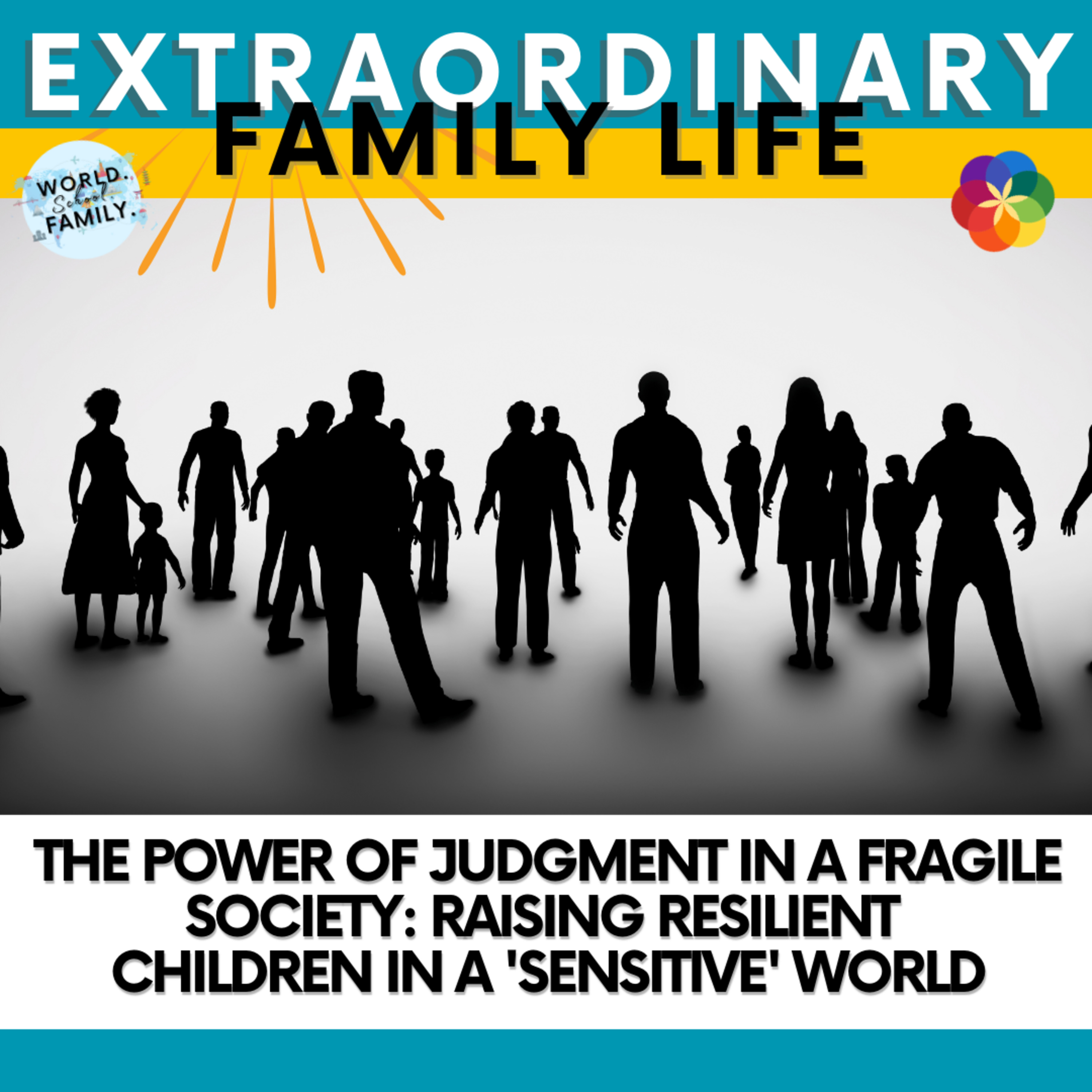The Entitlement Epidemic: Why It’s Undermining Resilience, Relationships, and Personal Growth

Have you ever felt frustrated when your child expects something just because? Or when people around you seem to demand success, comfort, or recognition—without putting in the work? You're not alone. We're living in the middle of what can only be described as an entitlement epidemic, and it’s not only damaging individual character… it’s weakening families, relationships, and society as a whole. This post expands on the conversation from our podcast episode #282 The Journey of Personal Development: From Fixed to Growth Mindset, where we explore the root causes of entitlement and how we can raise resilient, responsible, and emotionally strong kids in today’s culture.
What Is the Entitlement Epidemic?
Entitlement shows up as the belief that someone deserves special treatment, privileges, or outcomes—regardless of effort, behavior, or attitude.
It’s the expectation of reward without work. And unfortunately, it’s becoming more and more common.
This mindset is quietly eroding resilience, humility, and personal growth—three things that are essential for building strong families and a thriving life.
Where Does Entitlement Come From?
The entitlement epidemic isn’t random—it’s been growing over time, fueled by several modern influences:
- Over-parenting and over-accommodation.
When parents constantly shield their kids from discomfort, solve every problem for them, or praise them for doing the bare minimum, it creates a false sense of superiority. Kids start to believe they’re owed something, instead of learning that growth comes from effort. - Instant gratification culture.
We live in a world of two-day shipping, bingeable entertainment, and answers in 0.3 seconds. But that convenience often conditions us to expect everything now—and to give up quickly when something takes real effort or patience. - Social media distortions.
Platforms like Instagram and TikTok show the highlight reels of success, without the struggle behind the scenes. This warps our expectations and fuels a mindset of "If they have it, I should have it too—now." - Changing cultural values.
There’s been a slow erosion of traditional values like hard work, self-sacrifice, and perseverance. These have been replaced in many circles with an overemphasis on self-expression, validation, and comfort—often at the expense of responsibility and grit.
What’s the Cost of Entitlement?
When entitlement takes root, it has real and painful consequences—not just for individuals, but for families and society.
Low resilience.
Entitled individuals struggle to cope with failure.
If something doesn’t go their way, they blame others.
They quit early.
They don’t bounce back.
Why?
Because they’ve never had to.
Strained relationships.
It’s hard to have a healthy relationship with someone who believes they’re always right or always deserving.
Entitlement creates conflict, resentment, and a lack of empathy—all of which break down trust and connection.
Lack of personal responsibility.
When someone believes the world owes them something, they stop owning their choices.
And without personal responsibility, growth, progress, and success are nearly impossible.
Victim mentality.
Entitlement and victimhood often go hand in hand.
The more entitled a person becomes, the more they interpret normal challenges as unfair.
This reinforces powerlessness and emotional fragility.
So What Can We Do About It?
We can’t change culture overnight, but we can raise kids (and become adults) who are strong, capable, and emotionally intelligent—by intentionally nurturing resilience and personal responsibility at home.
Here’s how:
Normalize effort and struggle.
Teach your kids that hard is good.
That failure is part of learning.
Celebrate perseverance more than performance.
Let them earn rewards, not expect them.
Create clear expectations and boundaries.
Don’t be afraid to say no.
Set age-appropriate responsibilities and hold them accountable.
Let them experience consequences so they learn to regulate themselves and respect others.
Model gratitude and humility.
Gratitude is the antidote to entitlement.
Talk about your blessings.
Practice saying thank you.
Serve others together.
Help your kids see what they have, instead of what they lack.
Foster empathy and contribution.
Help your children see life through other people’s eyes.
Encourage acts of kindness and service.
Show them that fulfillment comes not from what you get—but from what you give.
Reframing Adversity: Growth Is in the Struggle
One of the most powerful ways to fight entitlement is to reframe life’s challenges. Instead of seeing adversity as unfair or undesirable, we can see it as the very thing that develops our strength, grit, and character.
Remind yourself—and your children—that life isn’t supposed to be easy.
It’s supposed to be meaningful.
And meaning often comes through struggle, not in the absence of it.
Let them get uncomfortable.
Let them wrestle with boredom, hard work, or disappointment.
Let them learn that perseverance pays off.
These moments are gifts—they’re the training ground for greatness.
If we want to raise emotionally strong, resilient, and grateful children—and become that way ourselves—we have to push back against the entitlement epidemic with intentionality, wisdom, and love.
It starts at home.
To go deeper into this conversation and get real-life examples, listen to episode #282 The Journey of Personal Development: From Fixed to Growth Mindset.
The topics discussed in our episodes are intended for educational and entertainment purposes only. They should not be considered medical advice. Always consult a qualified professional for any medical concerns or questions.
RESOURCES:
Let us help you in your extraordinary family life journey.
- JOIN GREG'S 90-DAY HEALTH & FITNESS CHALLENGE!
- Get Rachel's Family Systems & Charts
- Join the 28-Day Challenge for Moms
- Rachel’s Must-Read Booklist for Well-Read Moms
- Greg's Recommended Reading List for Parents & Youth
- Join the Be The Man Coaching and Tribe
- Download the Be The Man app on iOS or Android
- Take the Be The Man 7-Day Challenge.
- Follow us on Instagram: @worldschoolfamily or @greg.denning
- Gather with us at the World School Family (Beach & Farm) Resort in Portugal
- Read our reviews here: https://podcast.extraordinaryfamilylife.com/reviews/
- --- Send in a voice message: https://podcasters.spotify.com/pod/show/extraordinary-family-life/message












